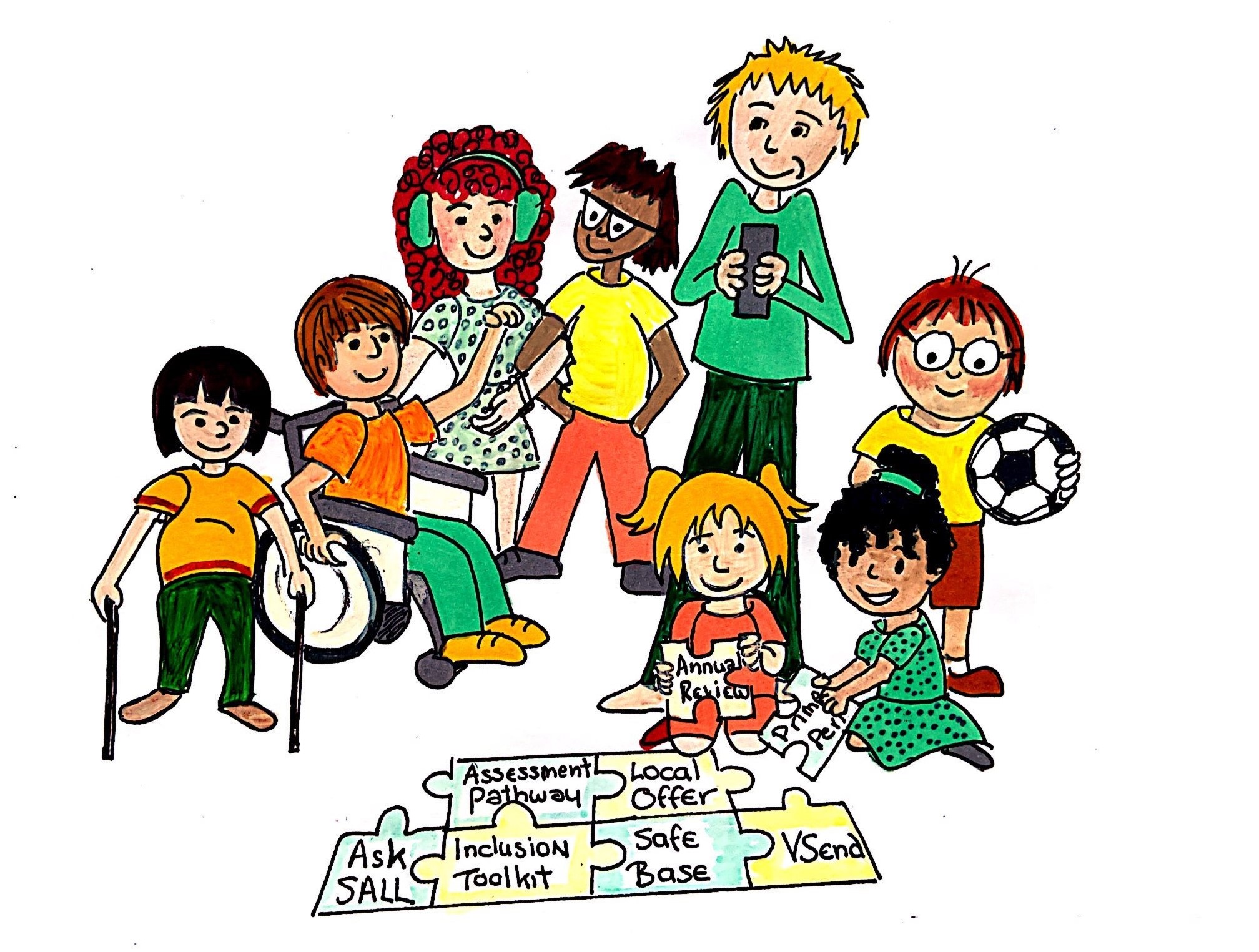Level 7-10 what you may notice
0-5
The child has a profound hearing loss (see descriptor below). Their needs are met through the use of significant adaptations of materials and assistive technology. The child will have regular contacts from a Qualified Teacher for children and young people with a Hearing Impairment (QTHI) from SEST.
- will have profound hearing loss
- will have significant difficulty accessing spoken language and speech clarity may be affected
- may use additional methods of communication to support understanding and expression. For example, sign supported english
- will have difficulties with early literacy. For example, pre-reading and pre-writing skills
- will need support with social interactions with their peers and find it difficult to maintain positive self-esteem and social confidence
- will have significant difficulty in processing verbal information at the same speed as their peers
- will miss out on incidental learning as they are unable to overhear conversations
- will need to focus their visual attention for long periods of time. For example, to lip read the different speakers or to watch someone using sign support
- will need support to fully develop an understanding of others and maintain positive relationships with peers
- without specialist support they will be at high risk of not achieving and maintaining levels of attainment in keeping with their age and abilities or making expected progress
5-16
Level 7-8
The pupil has a classified hearing loss (see descriptor below). The pupil’s needs are met through the use of significant adaptations of materials and assistive technology to enable access to the curriculum. The pupil will require formal ongoing instruction to enable them to live as independently as possible. The pupil will have regular contacts from a Qualified Teacher for children and young people with a Hearing Impairment (QTHI) from SEST.
Level 9-10
The pupil has a classified hearing loss (see descriptor below). The pupil's needs may require consideration given to a specialist placement at some point with access to daily teaching by Qualified Teachers for children and young people with a hearing impairment. The pupil will have regular contacts from a Qualified Teacher for children and young people with a Hearing Impairment (QTHI) from SEST.
- will have profound hearing loss
- will have difficulties with literacy. For example, reading comprehension and grammatical structure and content in written English
- will not be able to benefit from usual approaches to learning to read
- will have delayed language development, gaps in vocabulary and general knowledge
- will need support with social interactions with their peers and find it difficult to maintain positive self-esteem and social confidence
- will have significant difficulty in processing verbal information at the same speed as their peers
- will miss out on incidental learning as they are unable to overhear conversations, programmes on the radio
- will need support to fully develop an understanding of others and maintain positive relationships with peers
- without specialist support they will be at high risk of not achieving and maintaining levels of attainment in keeping with their age and abilities or making expected progress


